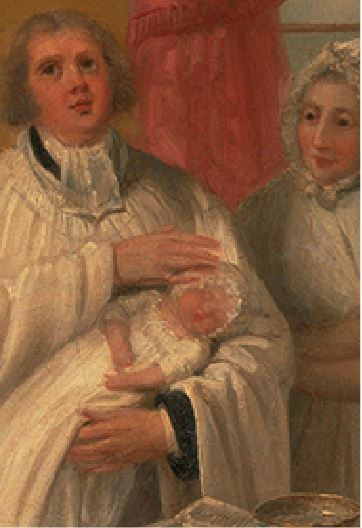In England the number of people claiming to be ‘Christian’ has dropped dramatically over the past few decades. Consequently, attendance at church services is low. In particular, infant christening is often replaced by secular ‘naming ceremonies’. The massive decrease in religious faith is of concern to many people. And what about children who have not been christened: are they in danger?
A Command
The traditional church ritual of sprinkling the forehead of a baby should really be called ‘christening’ and not ‘baptism’. According to the Bible baptism is different: it is undertaken by adults who have expressed a faith in the death and resurrection of Jesus Christ as Son of God, and it involves the complete immersion of the person in water.
Baptism was commanded by Jesus (Mark 16:15–16) and also by his followers the apostles (for example Acts 22:16). It was done where there was much water (John 3:23, Acts 8:36–39). Jesus himself insisted that he was baptised to ‘fulfil all righteousness’ (Matthew 3:13–17). The apostles taught that baptism is the first act of obedience a believer must do, after acknowledging their desperate need to be forgiven and to be saved from eternal death. Their message was: believe, then repent, then be baptised. They preached this with urgency and zeal (Acts 2:37–39).
Going down into the water is a symbol of being buried with Jesus in death. Emerging out of the water again is a symbol of being raised with Jesus from death to a new life: a life of trying to follow Jesus and a life of hope of sharing eternal life with him (Romans 6:2–5). It is a pledge to follow Jesus.
Baptism ‘washes away’ all previous sins, so that the believer can have a relationship with God. And it means that from then on all the believer’s sins can be forgiven, as long as they remain faithful (1 John 1:9).

Faith, Not Magic
During the first three centuries AD adult baptism was ‘the rule’. The established church later introduced child christening. Belief and commitment are obviously impossible for a baby: a baby cannot be aware of sin and death, cannot repent and cannot decide to follow Jesus. So the church reasoned that the child’s ‘baptism’ had to be ‘confirmed’ later when they had grown up.
Some suggested that christening ‘cleansed the nature’ of the child, even that it ‘exorcised’ evil (such as demons). Midwives have been encouraged to christen very ill babies in order to ensure they do not die in an ‘un-consecrated’ state. Because the act of christening is seen as a ritual that is powerful in itself, the theory arose that it is best performed with ‘holy water’.
But this is all a far cry from Bible practices. According to the Bible, neither the water nor the ceremony itself have any magical qualities. The idea of holy water transforming someone owes more to superstition than Bible teaching.
Bible baptism is an act of faith and obedience, reflecting a person’s desire to enter a relationship with God and their determination to follow Jesus. In itself, dipping in water achieves nothing. That does not mean that baptism is unnecessary, because it is a commandment of God. It is an outward sign that a person wants to be ‘born again’.
Circumcision
Some have compared christening with the Jewish ritual of circumcision, in which a baby boy has his foreskin removed, usually at eight days old. This ritual is as old as the Jewish race, it originates in Genesis 17:10–14 when God told Abraham to be circumcised along with all his household as a sign of the covenant between them and God.
There were very good health reasons for this practice, and under the Law which God gave to Israel it was commanded for the Jewish nation. But circumcision does not do what baptism does. The Apostle Paul argued vehemently against those in the early church who were teaching that non-Jewish Christians should be circumcised (Galatians 6:12–15). ‘For in Christ Jesus neither circumcision nor uncircumcision avails anything, but a new creation’ (verse 15).
God’s Commands, Not Ours
Jesus said some very hard words to the Jewish leaders of his day. In their zeal to please God they had invented all sorts of rules and procedures which added to the Law which God had given them. Jesus saw that some of these extra rules actually served to invalidate God’s law (Matthew 15:3–6): ‘You have made the commandment of God of no effect by your tradition’ (verse 6).
Replacing baptism with christening is clearly reminiscent of what the Jewish leaders did. No person, government or church ever has a right to change the commandments of God. He is right and we must try to do what He says, not what we think.
So if a baby is not christened it will do no harm. What will do harm is to grow up in ignorance of the Gospel message and the work of the Lord Jesus (John 3:17–18).

